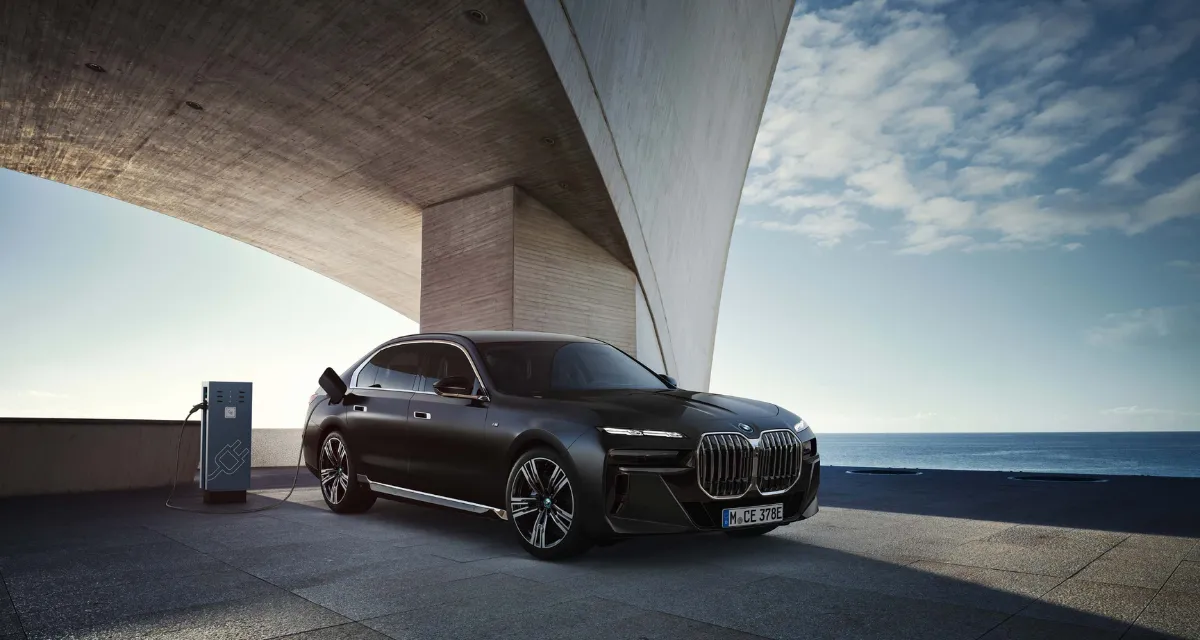

When it comes to India and the EV market, BMW is the real king in this particular segment. It has announced its achievement of a significant milestone with EVs making up 10% of its annual sales. This achievement showcases BMW’s position and dominance in the current struggling Indian EV market. Globally, BMW holds the third position in the EV market, trailing only Tesla and BYD.
In India, BMW has seen remarkable growth, marking its highest-ever sales in the first half of the year. The company reported a 21% increase in car sales, with 2000 EVs delivered so far. The BMW iX, a luxury electric SUV, has been a significant contributor to these numbers, with over 1000 units sold. The starting price for the iX is around Rs 1.4 crore, ex-showroom, making its sales performance even more impressive.
Vikram Pawah, President and CEO of BMW Group India, attributes this success to understanding and meeting customer needs across various regions, including metros and smaller cities. He emphasized that offering the right product and support to customers is crucial. According to Pawah, BMW's growth in the EV sector is driven by its superior products.
Despite the positive momentum, BMW acknowledges the challenges in sustaining this growth. Jean Phillipe Parain, Senior Vice President of Sales Region Asia-Pacific, Eastern Europe, Middle East, and Africa at BMW Group, highlighted a global slowdown in EV adoption, which he links to reduced subsidies. He stressed that incentives are essential for a smooth transition from internal combustion engine (ICE) vehicles to battery electric vehicles (BEVs). These incentives help reduce the price gap between traditional and electric vehicles, making EVs more attractive to consumers.
BMW remains committed to the Indian government's EV policy. Pawah pointed out that EVs are suitable for India due to the typical driving patterns, which are mostly within cities. Given the heavy traffic conditions, the running costs of EVs become a significant factor for consumers. BMW's EVs, offering ranges between 400 km to 600 km, cater to this need. The company also boasts the most diverse EV portfolio in India, extending beyond the luxury segment.
With the current demand for EVs, BMW is cautiously optimistic about the future. The company is open to the idea of locally assembling EVs in India, but this will depend on achieving certain growth in volume and demand. The Indian EV market is still in its early stages, but there are encouraging signs. Pawah noted a shift from diesel to electric vehicles among consumers, driven mainly by economic considerations.
Currently, BMW offers a lineup of eight electric vehicles in India. This includes the all-electric Mini Countryman and the CE 04 electric scooter by Motorrad, reflecting the company's commitment to expanding its EV offerings.
To Summarize, BMW's success in the luxury EV market, particularly in India, is a testament to its strategic focus on understanding and meeting customer needs. The company's impressive sales figures, especially for high-end models like the iX, highlight the demand for quality electric vehicles. However, maintaining this growth will require continued support from government policies and subsidies to make EVs more affordable and attractive to a broader range of consumers. BMW's potential plans for local production indicate a long-term commitment to the Indian market. As the EV market evolves, BMW's ability to adapt and innovate will be crucial in maintaining its leadership position.
Also Read: